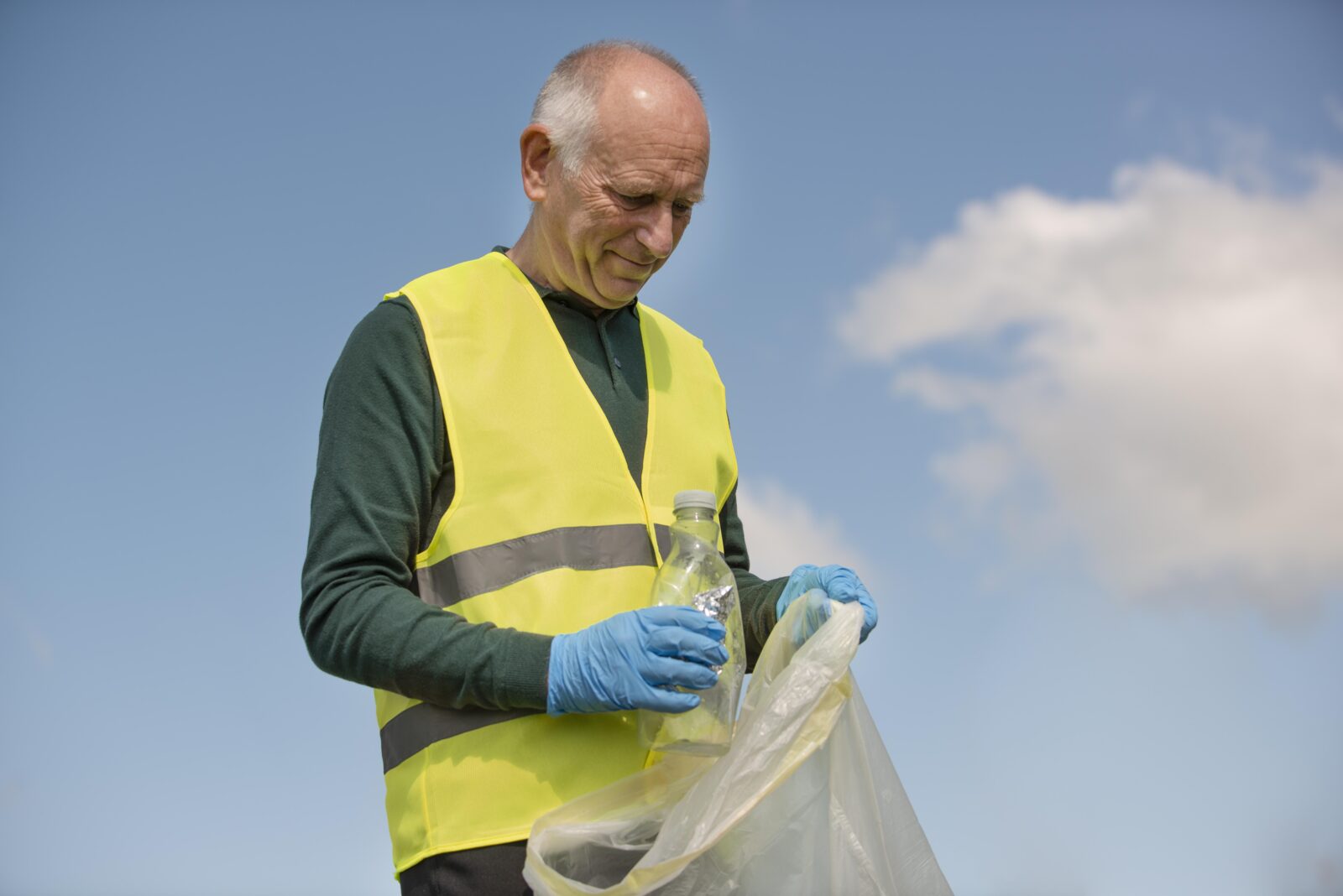
Arc Flash Gloves: Selecting the Right Protection
Choosing the right Arc Flash Gloves is key to ensuring your safety in high-risk environments like electrical maintenance or construction....

Get 10€ off on your first order!
When it comes to choosing nitrile gloves for cleaning and sanitation, understanding the key features and requirements is crucial. Whether you’re a professional cleaner, working in sanitation, or maintaining hygiene in your home, the right nitrile gloves will provide both safety and comfort. By the end of this guide, you’ll have all the knowledge needed to confidently select the best nitrile gloves for your needs. Additionally, we’ll provide solutions to help you address related challenges, such as proper glove disposal or selecting gloves for specialized environments. For a broader overview of nitrile gloves, check out How To Choose The Right Nitrile Gloves – A Buyer’s Guide.
Nitrile gloves, also known as disposable gloves or synthetic gloves, are widely recognized for their durability, chemical resistance, and comfort. Compared to other materials like vinyl or latex, nitrile is superior in protection against harsh chemicals often encountered during cleaning tasks.
For professional-grade options, explore the Nitrile Gloves category.
The thickness of nitrile gloves determines their durability and protection level. For cleaning tasks, gloves typically range between 3 to 8 mils in thickness. Thicker gloves are suitable for heavy-duty cleaning, while thinner options provide dexterity for delicate tasks.
| Use Case | Recommended Thickness |
| Light cleaning | 3-5 mils |
| General sanitation | 5-6 mils |
| Heavy-duty cleaning | 7-8 mils |
Most cleaning and sanitation applications require powder-free gloves to avoid contamination and residue. Powdered gloves, while easier to don, may cause allergic reactions and leave powder traces.
Proper fit is essential for safety and comfort. Ill-fitting gloves can lead to reduced dexterity or increased risk of tearing. Refer to this size guide for accurate selection:
| Hand Circumference (cm) | European Size | Recommended Size |
| <18 | XS | Extra Small |
| 18-20 | S | Small |
| 20-22 | M | Medium |
| 22-25 | L | Large |
| >25 | XL | Extra Large |
When selecting gloves, look for certifications like EN 374 for chemical protection and EN 388 for mechanical risks. These standards ensure the gloves meet safety and performance criteria.
Learn more about glove certifications standards from the Official EN Standards Website.

While nitrile is a top choice, alternatives like vinyl gloves or chemical-resistant gloves may suit specific cleaning needs. Here’s how they compare:
| Material | Advantages | Limitations | Approximate Cost |
| Nitrile | Durable, chemical-resistant, puncture-proof | Higher cost than vinyl | Moderate to High |
| Vinyl | Economical, good for light cleaning | Less durable, lower chemical resistance | Low |
| Chemical-Resistant | Superior for handling corrosive substances | May be less comfortable for prolonged use | High |
Explore related categories like Vinyl Gloves and Chemical Resistant Gloves for tailored solutions.
For everyday cleaning tasks, medium-thickness nitrile gloves provide protection without compromising dexterity. This is ideal for household chores such as cleaning kitchens and bathrooms or handling household cleaning agents.
In professional settings, where exposure to harsher chemicals is common, opt for thicker, industrial-grade nitrile gloves. These are commonly used in janitorial services, industrial cleaning, and facility maintenance where durability is essential.
Cleanrooms and healthcare facilities require sterile nitrile gloves to maintain strict hygiene standards. These gloves are essential in environments like pharmaceutical production, laboratory work, or hospital sanitation to ensure contamination-free procedures. Visit Cleanroom & Sterile Gloves for specialized options.
To ensure safety and sustainability:
For further insights, explore these articles:
We hope this guide has been helpful in navigating the essential factors for choosing the best nitrile gloves for cleaning and sanitation. From understanding material compatibility to selecting the right fit and certifications, you’re now equipped to make a confident choice. Whether you’re tackling household cleaning tasks or ensuring safety in professional sanitation, we’re here to support your needs.
Explore the full range of Nitrile Gloves on Droppe, where trusted brands provide reliable options for every scenario.
Have questions or need advice on your next purchase? Don’t hesitate to reach out—we’re always here to help you stay safe and confident in your decisions.
– The Droppe Team
Nitrile gloves are generally designed for single use to ensure optimal hygiene and safety. Reusing disposable gloves can compromise their protective qualities, especially if they have been exposed to harsh chemicals or show signs of wear and tear. For reusable options, consider heavy-duty chemical-resistant gloves.
Traditional nitrile gloves are not biodegradable as they are made from synthetic materials. However, some manufacturers now offer biodegradable nitrile gloves, which provide the same level of protection while reducing environmental impact. Look for eco-friendly labels when purchasing.
While nitrile gloves are highly resistant to many chemicals, they may not provide sufficient protection against certain strong acids, alkalis, or solvents. Always check the glove’s chemical compatibility chart and certifications like EN 374 to ensure they meet your specific needs.
Nitrile gloves are latex-free, making them an excellent choice for individuals with latex allergies. However, prolonged use or the presence of certain chemicals in the glove material may cause mild irritation in some users. If irritation occurs, switch to hypoallergenic or powder-free gloves.
When stored properly in a cool, dry place away from direct sunlight, nitrile gloves typically have a shelf life of 3 to 5 years. Always check the packaging for expiration dates and inspect gloves for signs of degradation before use.
Thank you! You've signed up for our newsletter.



















Choosing the right Arc Flash Gloves is key to ensuring your safety in high-risk environments like electrical maintenance or construction....

Choosing the right Rubber Insulating Gloves is essential for safety in electrical work, but with so many options, it can...

Are you looking for the right electrical insulating gloves to ensure your safety? This guide will help you understand the...

Choosing the right Arc Flash Gloves is key to ensuring your safety in high-risk environments like electrical maintenance or construction....

Choosing the right Rubber Insulating Gloves is essential for safety in electrical work, but with so many options, it can...

Are you looking for the right electrical insulating gloves to ensure your safety? This guide will help you understand the...
Get 10€ off on your first order!
Save 30% by buying directly from brands, and get an extra 10€ off orders over €100
Save 30% by buying directly form brands, and get an extra 10€ off orders over €100